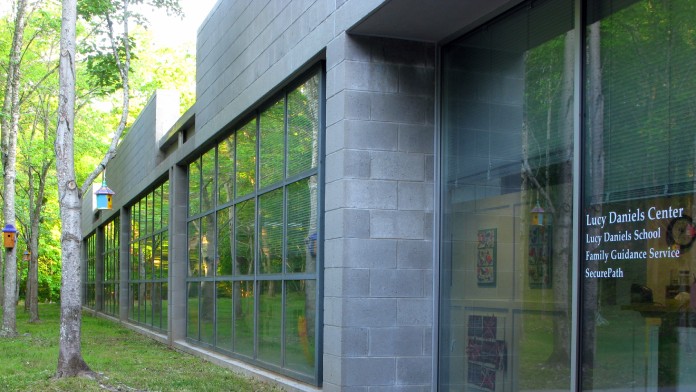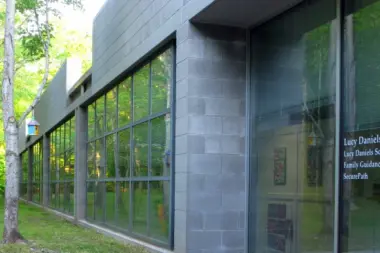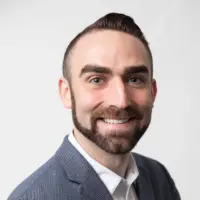About Lucy Daniels Center for Early Childhood
The Lucy Daniels Center in Cary, North Carolina, determines the underlying cause of challenging behaviors of children and teaches parents how to understand and respond. They employ a psychiatrist, psychotherapists, and other staff members to provide therapeutic interventions.
The center accepts Medicaid, United Behavioral Health, and other common insurance plans. Free services are available to families who qualify for them. Fee reductions based on income are available for uninsured parents.
The center is recognized by the Raleigh Chamber, the Morrisville Chamber of Commerce, the Cary Chamber, and the Alliance for Psychoanalytic Schools.
Therapy for Children Affected by Substance Use in the Home
A child who has a parent with substance use disorder can be affected both in behavior and psychologically. The center has a Farley-Manning Family Guidance Service (FGS) which offers onsite and telehealth outpatient therapy for children up to 11 years old and their families.
Parents can request a consultation and hear back from the facility within two weeks. A meeting will be scheduled with the parents to find out the unique needs and behaviors of the child. Limited evening hours are available for working parents.
Different Approaches to Care
FGS uses a combination of parenting counseling, play therapy for the child, family therapy, and collaboration with the child’s school. A parent in need of substance use treatment can be referred by the service.
Behaviors typically addressed include anxiety, behavior and discipline challenges, reactions to abuse and trauma, impulsivity and aggression, fears, sleep and toileting problems, social isolation, and conflict with peers. Children are treated with psychiatric evaluations, medication management, and psychotherapy services.
A SecurePath program partners with Wake County Smart Start for children up to five years of age in low income families. Services are provided in home or at a childcare center.
Groups and Workshops for Parents and Caregivers
Therapeutic groups and workshops are available for parents and caregivers. Parents are taught best practices for their child’s mental health. Training aims to promote healthy social and emotional growth for each child.
Latest Reviews
Rehab Score
Gallery


Accepted Insurance
Other Forms of Payment
Medicaid is a state based program that helps lower-income individuals and families pay for healthcare. Medicaid covers addiction treatment so those enrolled can use their coverage to pay for rehab. When a program accepts Medicaid the client often pays very little or nothing out of their own pocket.
Private insurance refers to any kind of healthcare coverage that isn't from the state or federal government. This includes individual and family plans offered by an employer or purchased from the Insurance Marketplace. Every plan will have different requirements and out of pocket costs so be sure to get the full details before you start treatment.
Self-pay involves paying for treatment out of your own pocket. You can use savings or credit, get a personal loan, or receive help from family and friends to fund your treatment. If you don't have insurance or your insurance plan doesn't cover a specific program, self-pay can help ensure you still get the care you need.
Financial aid can take many forms. Centers may have grants or scholarships available to clients who meet eligibility requirements. Programs that receive SAMHSA grants may have financial aid available for those who need treatment as well. Grants and scholarships can help you pai for treatment without having to repay.
Sliding scale payments are based on a client's income and family size. The goal is to make treatment affordable to everyone. By taking these factors into account, addiction recovery care providers help ensure that your treatment does not become a financial burden to you or your family, eliminating one barrier to care.
Addiction Treatments
Levels of Care
Outpatient Programs (OP) are for those seeking mental rehab or drug rehab, but who also stay at home every night. The main difference between outpatient treatment (OP) and intensive outpatient treatment (IOP) lies in the amount of hours the patient spends at the facility. Most of the time an outpatient program is designed for someone who has completed an inpatient stay and is looking to continue their growth in recovery. Outpatient is not meant to be the starting point, it is commonly referred to as aftercare.
Treatments
Mental health rehabs focus on helping individuals recover from mental illnesses like bipolar disorder, clinical depression, anxiety disorders, schizophrenia, and more. Mental health professionals at these facilities are trained to understand and treat mental health issues, both in individual and group settings.
Clinical Services
Cognitive Behavioral Therapy (CBT) is a therapy modality that focuses on the relationship between one's thoughts, feelings, and behaviors. It is used to establish and allow for healthy responses to thoughts and feelings (instead of unhealthy responses, like using drugs or alcohol). CBT has been proven effective for recovering addicts of all kinds, and is used to strengthen a patient's own self-awareness and ability to self-regulate. CBT allows individuals to monitor their own emotional state, become more adept at communicating with others, and manage stress without needing to engage in substance abuse.
Whether a marriage or other committed relationship, an intimate partnership is one of the most important aspects of a person's life. Drug and alcohol addiction affects both members of a couple in deep and meaningful ways, as does rehab and recovery. Couples therapy and other couples-focused treatment programs are significant parts of exploring triggers of addiction, as well as learning how to build healthy patterns to support ongoing sobriety.
Research clearly demonstrates that recovery is far more successful and sustainable when loved ones like family members participate in rehab and substance abuse treatment. Genetic factors may be at play when it comes to drug and alcohol addiction, as well as mental health issues. Family dynamics often play a critical role in addiction triggers, and if properly educated, family members can be a strong source of support when it comes to rehabilitation.
Group therapy is any therapeutic work that happens in a group (not one-on-one). There are a number of different group therapy modalities, including support groups, experiential therapy, psycho-education, and more. Group therapy involves treatment as well as processing interaction between group members.
In individual therapy, a patient meets one-on-one with a trained psychologist or counselor. Therapy is a pivotal part of effective substance abuse treatment, as it often covers root causes of addiction, including challenges faced by the patient in their social, family, and work/school life.
Trauma therapy addresses traumatic incidents from a client's past that are likely affecting their present-day experience. Trauma is often one of the primary triggers and potential causes of addiction, and can stem from child sexual abuse, domestic violence, having a parent with a mental illness, losing one or both parents at a young age, teenage or adult sexual assault, or any number of other factors. The purpose of trauma therapy is to allow a patient to process trauma and move through and past it, with the help of trained and compassionate mental health professionals.
Staff

Emily Odjaghian
Clinical/Executive Director

Sindhura Kunaparaju
Director of Medical Services

Allison Ballew
Associate Clinical Director

Helen Nowlan-Walls
Director of Development

Derek Watson
Chairman, BOD

John Whelehan
Treasurer, BOD
Contact Information
9003 Weston Parkway
Cary, NC 27513

